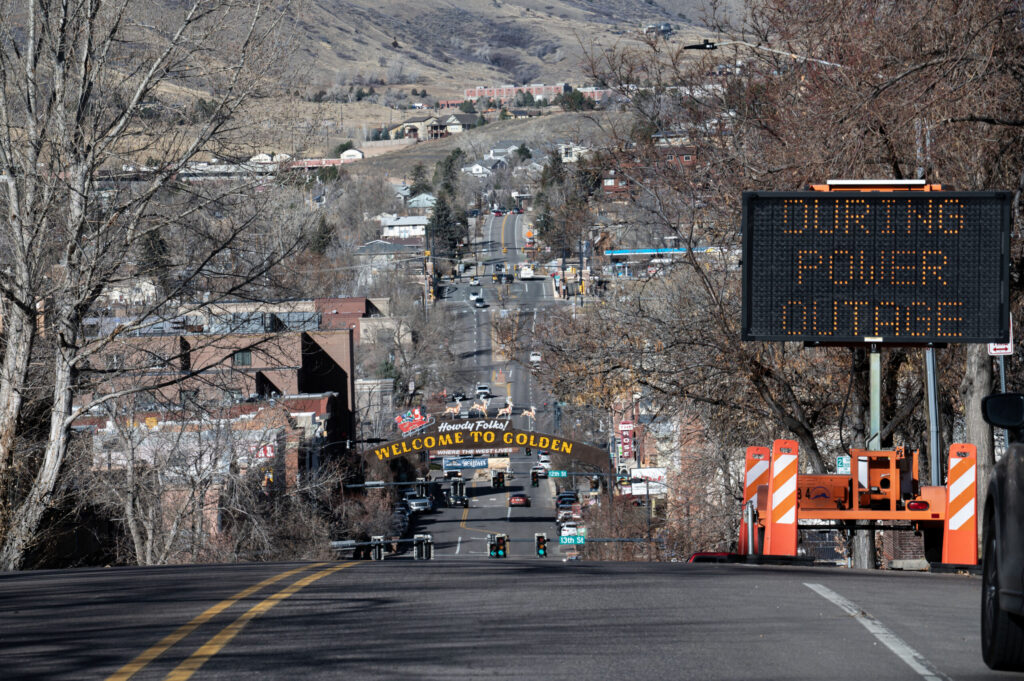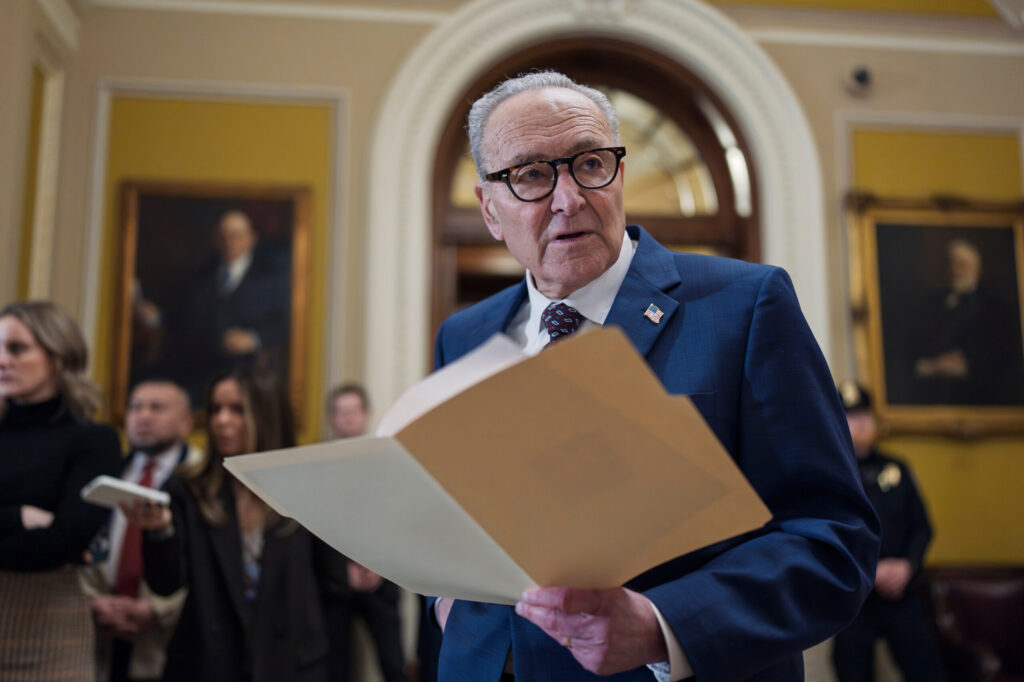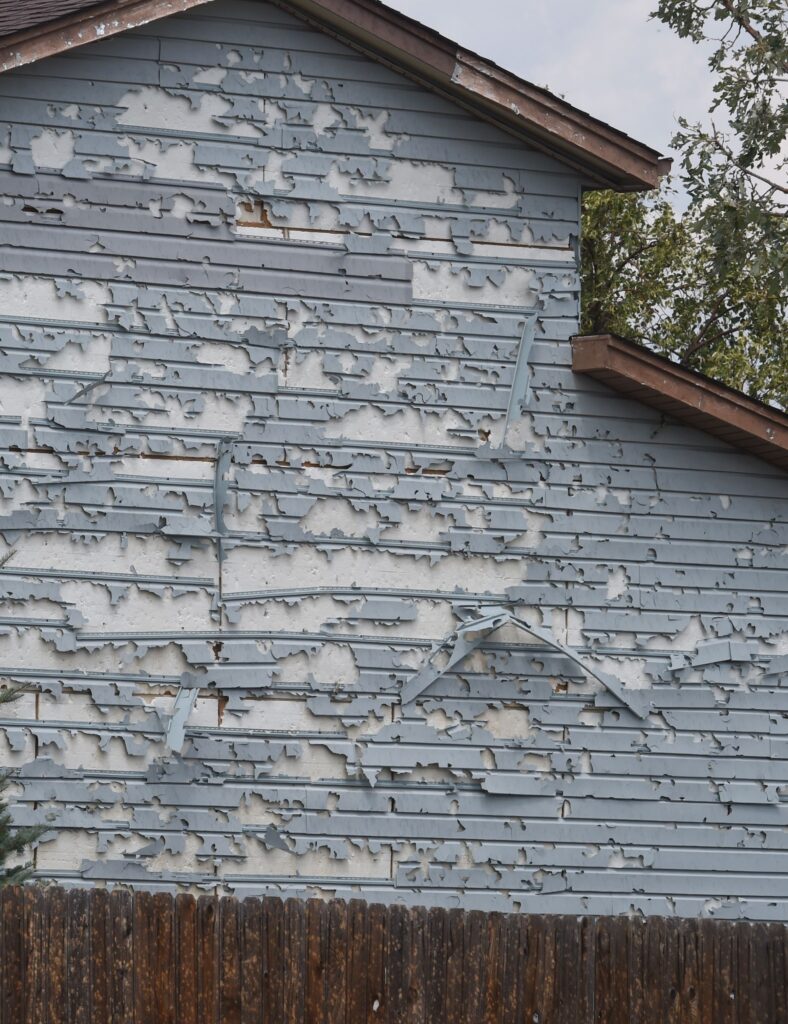New legal opinion casts doubts on recycling bill

A legal opinion from Brownstein Hyatt Farber Schreck casts doubts about the legality of a measure that intends to make a long list of industries pay for a new state recycling program.
Should House Bill 1355 be signed into law, that opinion could lay the groundwork for a court challenge.
The Producer Responsibility Act, as HB 1355 is titled, shifts financial responsibility for recycling from consumers to manufacturers. It requires a nonprofit to be established – to be known as a “producer responsibility organization” or PRO – that would levy “dues” beginning on January 1, 2025 to cover the costs of the state recycling program. The PRO would also be responsible for ensuring recycling services are in place all over the state, including in rural parts of Colorado, where recycling services are few and far between, if they exist at all.
The legislation seeks to address Colorado’s abysmal recycling rate, estimated at between 11% and 15%, well below the national average of 34% and an average of 60% to 80% in countries with extended producer responsibility laws, according to Recycle Colorado, the bill’s primary backer, which is expected to the the designated nonprofit.
Randy Moorman of Recycle Colorado has said recycling participation goes up when barriers to recycling are eliminated, such as accessibility. The PRO will pay for recycling, instead of consumers, eliminating a second barrier – consumer cost, he explained.
But businesses, industry organizations and chambers of commerce, as well as their allies in the House GOP, are readying for a fight when the bill comes up for second reading debate in the House.
HB 1355 has already cleared the House Energy & Environment and House Appropriations committees, both on party-line votes.
Part of that fight is expected to come from the Brownstein legal opinion.
The opinion, authored by Sarah Mercer and Josh Weiss at Brownstein on behalf of the bill’s opponents, said the measure raises five legal issues.
The opinion said the bill may restrict freedom of association of “producers.” Rachel Beck of the Colorado Competitiveness Council said during a media briefing Wednesday that the First Amendment guarantees freedom of association, but that also means freedom not to associate. HB 1355 mandates business and industry membership in the nonprofit organization.
HB 1355 could also implicate “nondelegation authority,” according to the opinion. What that means, Beck said, is that the legislature is responsible for certain functions and prohibited from delegating those responsibilities to an unaffiliated organization.
“To kick this to a nonprofit that has no government oversight, accountability to citizens or any of the transparency measures that government agencies subject to, such as sunshine provisions, is legally problematic,” she said.
The opinion also claimed HB 1355 is an end-run around both the Taxpayer’s Bill of Rights and the 2020 ballot initiative Proposition 117, which requires state-run businesses, known as enterprises, to get voter approval to levy fees. Beck said the PRO meets the definition of an enterprise. That comes, however, with voter approval for the fees, which she estimated would exceed the $100 million annual threshold set by Proposition 117.
The bill also raises concerns about the “dormant commerce clause on restraints on interstate trade,” the opinion stated. That applies to some of the exemptions put on the bill, including for the newspaper industry, a change made in the House Energy & Environment Committee hearing. The bill expressly exempts packaging material for agricultural products, newspaper print, companies with less than $5 million in gross revenue, builders and construction companies, and retail food businesses licensed by the state. Those exemptions, the opinion said, discriminates against out-of-state businesses and puts a burden on those businesses to fund the recycling program.
Finally, while the bill includes a limited exemption from antitrust and unfair trade practices, the exemption does not take into account the costs for consumers, according to the opinion.
“It is almost certain that covered producers will pass associated costs onto consumers,” the opinion said.
Terry Webber, vice president of industry affairs for the American Forest & Paper Association, described what the bill will do to his industry’s recycling efforts. Among their biggest concerns is that paper will, in effect, subsidize the development of a competing materials’ recycling infrastructure. HB 1355 should fully and fairly credit paper recycling’s success, and avoid disrupting that industry’s recycling efforts, he said.
He pointed out that paper is among the most recycled product, at 63% nationwide, since 2009. The paper industry is investing $5.1 billion in manufacturing infrastructure by 2024, which will increase recovered paper used by paper mills by eight million tons.
“We have a measurable track record of success of making paper based packaging more circular,” including for cardboard, which is already at 89%, he said, adding that would be difficult to improve on.
“We want to avoid measures that penalizes success,” he said, maintaining the bill should be applied to materials with low recycling rates, including batteries, mattresses, electronics and paint (which is already in a PRO in Colorado).
Webber added that recycling should be trusted to local governments, not a centralized system, which he said hasn’t worked in Canada and Europe.
A coalition of businesses and trade groups – which includes the retail council, the tavern league, trade groups for wine, beer, plastics and recycling – said HB1355 gives a private nonprofit unlimited taxing authority, and that while it requires out-of-state producers to pay into the program, it does not say how that would be enforced. The coalition, noting that other states have looked at PRO programs, said those states had already existing robust recycling infrastructures, something Colorado lacks.
The Brownstein legal opinion, as it turns out, is not the only one floating around the Capitol.
Rep. Lisa Cutter, D-Littleton, who sponsors HB 1355, told Colorado Politics that there are two others from organizations that support the bill. She also said she is working with the Attorney General’s Office and “we are confident that we’re on the way to resolving all the issues.”
That includes amendments that are likely to surface that will make it legally sound, she said.
HB 1355 is on the calendar for second reading debate on Thursday but those changes could delay that action.














